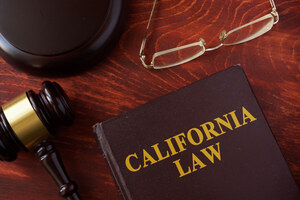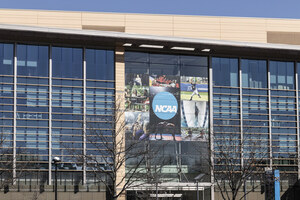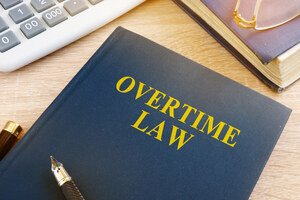LAWSUITS NEWS & LEGAL INFORMATION
California Unpaid Wages
Were you looking for California Donning and Doffing lawsuits?
By Jane Mundy
Although California labor law requires hourly (non-exempt) employees be paid for all time spent in work related duties, Meal and Rest Break Wage Violations and subsequent meal and rest break lawsuits are common. And when it comes to issues such as donning and doffing and logging into and out of computer systems, the rules are not always clear. California labor lawsuits have been filed against employers alleging employees are required to spend unpaid time putting on and taking off protective gear or specialized uniforms or otherwise carrying out activities that are required for their jobs. In some cases, the courts have found that employees should be compensated for this time.
 Meal breaks and rest periods are due to any non-exempt, hourly-paid worker under provisions in the California labor code and the federal Fair Labor Standards Act (FLSA). California labor employment law holds that non-exempt, hourly employees are provided with at least one rest period, as well as a meal break to last not less than 30 minutes and to be taken prior to the start of the fifth consecutive hour of work. And employees who work for eight hours or more are entitled to 10-minute breaks every four hours. A second 30-minute meal break must be provided if an employee works more than 10 hours. Such statutes are designed to help keep an employee fresh and engaged at the task at hand, through a provision for regular rest intervals and proper nourishment. During the meal period, California lunch break law requires that employers do the following:
Meal breaks and rest periods are due to any non-exempt, hourly-paid worker under provisions in the California labor code and the federal Fair Labor Standards Act (FLSA). California labor employment law holds that non-exempt, hourly employees are provided with at least one rest period, as well as a meal break to last not less than 30 minutes and to be taken prior to the start of the fifth consecutive hour of work. And employees who work for eight hours or more are entitled to 10-minute breaks every four hours. A second 30-minute meal break must be provided if an employee works more than 10 hours. Such statutes are designed to help keep an employee fresh and engaged at the task at hand, through a provision for regular rest intervals and proper nourishment. During the meal period, California lunch break law requires that employers do the following:
If an employee does not receive the proper meal and rest periods, including “recovery periods” or “cool down period afforded an employee to prevent heat illness,” (e.g., agricultural workers) the employer must pay to the employee one hour of pay as a penalty. Employers are advised to review California OSHA recommendations to preventing heat illness.
Employers owe a penalty of one hour of pay at the employee’s regular rate for every workday in which a meal break is not provided – same rule applies for rest breaks. For instance, if you work an eight-hour shift without meal and rest breaks you are entitled to receive one hour for the missed meal period and one hour for the missed rest breaks.
If your final paycheck is late or it doesn’t include all wages and vacation pay (and maybe overtime) you’re owed, you can collect waiting time penalties. For every day your employer makes you wait, you are entitled a full day of wages at your regular rate, up to a maximum of 30 days. For instance, if you earn $90 per day, and your employer is ten days late with your check, you can collect $900 in waiting time penalties.
Under FLSA, compensation is allowed for any activity deemed integral and indispensable to the employee when performing his or her job, but under California Law, donning and doffing compensation is still a “gray area”, which is hotly debated and litigated. Specifically, “integral and indispensable” activity is key to a donning and doffing claim. The US Supreme Court has ruled that employees should be paid for certain activities if those activities are essential to the work being done. Employees benefit by wearing safety gear because they are protected from workplace hazards, but employers benefit by not having to pay for as much leave when employees are injured on the job.
Lawsuits have been filed against a number of companies alleging employees are forced to participate in security checks during breaks and after work but are not paid for the time spent waiting for the checks to be completed.
If you or a loved one has suffered similar damages or injuries, please click the link below and your complaint will be sent to a lawyer who may evaluate your claim at no cost or obligation.
Last updated on
En Español CALIFORNIA PAGO DE HORAS EXTRAORDINARIAS
FREE CALIFORNIA UNPAID WAGES LAWSUIT EVALUATION
Send your California Unpaid Wages claim to a lawyer who will review your claim at NO COST or obligation.
GET LEGAL HELP NOW
GET LEGAL HELP NOW
California Meal and Rest Breaks
 Meal breaks and rest periods are due to any non-exempt, hourly-paid worker under provisions in the California labor code and the federal Fair Labor Standards Act (FLSA). California labor employment law holds that non-exempt, hourly employees are provided with at least one rest period, as well as a meal break to last not less than 30 minutes and to be taken prior to the start of the fifth consecutive hour of work. And employees who work for eight hours or more are entitled to 10-minute breaks every four hours. A second 30-minute meal break must be provided if an employee works more than 10 hours. Such statutes are designed to help keep an employee fresh and engaged at the task at hand, through a provision for regular rest intervals and proper nourishment. During the meal period, California lunch break law requires that employers do the following:
Meal breaks and rest periods are due to any non-exempt, hourly-paid worker under provisions in the California labor code and the federal Fair Labor Standards Act (FLSA). California labor employment law holds that non-exempt, hourly employees are provided with at least one rest period, as well as a meal break to last not less than 30 minutes and to be taken prior to the start of the fifth consecutive hour of work. And employees who work for eight hours or more are entitled to 10-minute breaks every four hours. A second 30-minute meal break must be provided if an employee works more than 10 hours. Such statutes are designed to help keep an employee fresh and engaged at the task at hand, through a provision for regular rest intervals and proper nourishment. During the meal period, California lunch break law requires that employers do the following:
- Relinquish control over the employee’s activities;
- Permit them a reasonable opportunity to take an uninterrupted 30-minute break;
- Not impede or discourage the employee from doing so.
- Visit the Labor Commissioner’s Office for more information about meal periods.
UNPAID WAGES PENALTIES
An employer who fails to pay the minimum wage (as of 2021, California’s minimum wage is $14.00 per hour or $13.00 per hour for employers with 25 or fewer employees) will be required to pay liquidated damages to the employees in addition to the existing penalties. “Liquidated damages” is financial compensation awarded to an employee for a loss or injury resulting from the employer’s failure to pay the minimum wage.If an employee does not receive the proper meal and rest periods, including “recovery periods” or “cool down period afforded an employee to prevent heat illness,” (e.g., agricultural workers) the employer must pay to the employee one hour of pay as a penalty. Employers are advised to review California OSHA recommendations to preventing heat illness.
Employers owe a penalty of one hour of pay at the employee’s regular rate for every workday in which a meal break is not provided – same rule applies for rest breaks. For instance, if you work an eight-hour shift without meal and rest breaks you are entitled to receive one hour for the missed meal period and one hour for the missed rest breaks.
If your final paycheck is late or it doesn’t include all wages and vacation pay (and maybe overtime) you’re owed, you can collect waiting time penalties. For every day your employer makes you wait, you are entitled a full day of wages at your regular rate, up to a maximum of 30 days. For instance, if you earn $90 per day, and your employer is ten days late with your check, you can collect $900 in waiting time penalties.
MEAL AND REST BREAK WAGE VIOLATION LAWSUITS AND SETTLEMENTS
Meal and Rest Break lawsuits allege violations to California state labor laws. A recent California Supreme Court ruling shows the importance of stricter meal practices in the workplace and for employers to enforce break policies that are compliant with California laws. A February 2021 ruling found that federal aviation laws do not preempt California requirements for meal and rest breaks because the Golden State's regulations have no direct implications for safety, upholding most of a $77 million win for Virgin America flight attendants in a class action who claimed the airline violated California labor laws by failing to pay minimum wage, overtime and for every hour worked; failed to provide meal and rest breaks and accurate wage statements; and failed to pay waiting time penalties.CALIFORNIA DONNING AND DOFFING LAWSUITS
California Donning and Doffing means the time employees spend putting on (“donning”) and taking off (“doffing”) mandatory personal protective work equipment and any specialized gear before and after shifts and during break time. Often, employers do not pay their employees for this time, even though the time spent putting on and taking off such gear can add 30 minutes to 60 minutes to a workday. If the employees work full-time, the minutes spent in donning and doffing might constitute overtime, meaning employees should be compensated at time-and-a-half.Under FLSA, compensation is allowed for any activity deemed integral and indispensable to the employee when performing his or her job, but under California Law, donning and doffing compensation is still a “gray area”, which is hotly debated and litigated. Specifically, “integral and indispensable” activity is key to a donning and doffing claim. The US Supreme Court has ruled that employees should be paid for certain activities if those activities are essential to the work being done. Employees benefit by wearing safety gear because they are protected from workplace hazards, but employers benefit by not having to pay for as much leave when employees are injured on the job.
CALIFORNIA CALL CENTER LAWSUITS
Employees have also filed lawsuits against various call centers, arguing they are required to spend unpaid time logging into and out of various computer systems before and after shifts and during breaks. Some companies are accused of automatically clocking employees out at the scheduled end of their shift, even if employees are in the middle of a phone call and unable to terminate the call.CALIFORNIA BEFORE AND AFTER WORK HOURS LAWSUITS
Even in situations where employees are not required to wear safety gear or log into or out of computer systems before and after shifts, employees could be required to work unpaid time. Some theme parks, for example, may require employees to show up to shift in their work uniform and answer all questions from park guests even if they are technically not on the clock. Some companies, meanwhile, may expect employees to drop off or pick up equipment outside of their scheduled work hours and not compensate employees for time spent in such tasks.Lawsuits have been filed against a number of companies alleging employees are forced to participate in security checks during breaks and after work but are not paid for the time spent waiting for the checks to be completed.
CALIFORNIA UNPAID WAGES LEGAL HELP
If you or a loved one has suffered similar damages or injuries, please click the link below and your complaint will be sent to a lawyer who may evaluate your claim at no cost or obligation.Last updated on
CALIFORNIA UNPAID WAGES LAWSUITS
- California Donning and Doffing Lawsuit
- Kendall Jackson Donning and Doffing Class Action claims that field workers have not been compensated for time preparing and finishing work.
- Overtime, CA California, you may be entitled to overtime wages
CALIFORNIA UNPAID WAGES LEGAL ARTICLES AND INTERVIEWS
California Basketball Officials Association Sued for Misclassification

NCAA Volunteer Coaches Seek Class Certification in Anti-trust Complaints

Santa Cruz Seaside Co. Pays $6M in Unpaid Wages


November 29, 2024
A basketball instructor has filed a Private Attorneys General Act (PAGA) lawsuit accusing the California Basketball Officials Association of misclassifying its instructors as independent contractors rather than employees. The lawsuit claims that the instructors have been cheated out of wages and other California labor law violations. READ MORE
NCAA Volunteer Coaches Seek Class Certification in Anti-trust Complaints

November 22, 2024
Volunteer coaches for Divison 1 baseball have requested a California federal judge to certify their proposed antitrust class action against the National Collegiate Athletic Association. They argue that the NCAA's "uniform wage fix" bylaw (now repealed) paid volunteer coaches nothing, which prevented them from getting compensated market value for their services. READ MORE
Santa Cruz Seaside Co. Pays $6M in Unpaid Wages

November 21, 2024
The Santa Cruz Seaside Co., which runs the Santa Cruz Beach Boardwalk, has settled a California labor lawsuit filed by current and former employees for close to $6 million. The class action lawsuit filed in July 2023, accuses the company of eight labor law violations. READ MORE
